 SELECTED
ISSUE
SELECTED
ISSUE
|
|
Leisure Management - Getting involved

Sports trusts

|
|
| Getting involved
|

Sports trusts across the country are introducing innovative programmes in order to increase participation. We look at a selection of initiatives that look to attract two key groups – young people and those who have to overcome physical barriers to take part in sport
|
|
|

|
Soundball tennis aids visually impaired

Organisation: Aquaterra Leisure
Project: Soundball Tennis

Players with visual impairments are benefiting from an association between Metro Blind Sport, a London-based sports and social club for blind and partially sighted people, and the Islington Tennis Centre, where sessions use specially adapted soundballs allowing players to hear the ball.
The two-hour soundball tennis sessions are held on Fridays for advanced players who can rally, and Sundays for beginners and people who are totally blind, where volunteers, as well as the tennis coach, are on-hand to support the players. The standard rules of tennis apply with just a few modifications: if you’re totally blind, you’re allowed three bounces; and if partially sighted you’re allowed two.
The sessions are funded by Sport Islington, which distributes Islington Council and SportsAid funding each year to support local sports clubs and help young sports people develop within their chosen sports. Islington Tennis Centre, which is managed by leisure operator and registered charity Aquaterra, first ran soundball tennis in 2011, but its popularity led to the programming of regular weekly sessions.
“I’d been keen to try out adapted tennis to fully appreciate how the game and its equipment feel. The answer is: brilliant!” says Ian Francis, sports development officer at Metro Blind Sport. “After two hours of competitive matches, a few drills, coaching tips and plenty of friendly banter, I was left in no doubt that this is a game to be enjoyed across all abilities and levels.
“Being visually impaired doesn’t have to be a barrier to a healthier lifestyle. Regular coaching encourages players to develop their game, and the facilities allow all ages and abilities to take part.”
Raising the profile of the activity is bringing results. Islington Tennis Centre hosted a regional LTA one-day visually impaired tennis camp in September, supported by Metro Blind, and is also hosting a junior taster session for soundball tennis in November.
Metro Blind Sport was recently named Sport Islington organisation of the year at the Sport Islington and Islington School Sport Partnership awards. Sport Islington chair Michael MacNeill says: “It was heartwarming to see Metro Blind Sport win, particularly as it’s their 40th year and one year on from the success of the Paralympics.”
| |
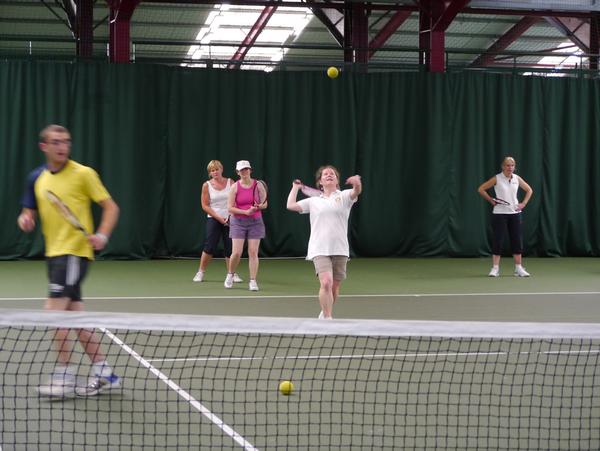

|

Players can hear the specially adapted balls coming
|
| |
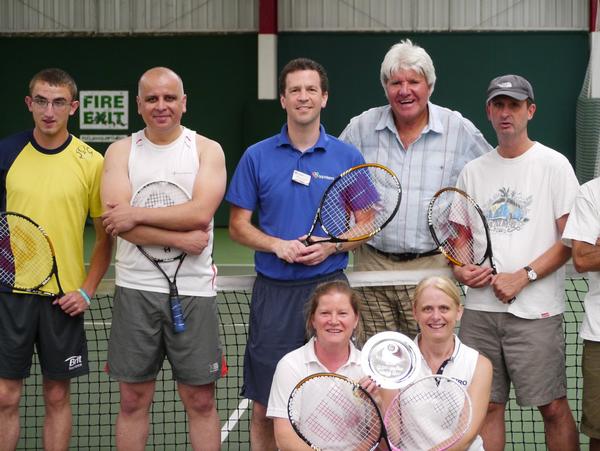

|
| Volunteers are on-hand to support the players |
| |
|

|
Youth action

Organisation: Live Active Leisure
Project: Active Energy scheme

Live Active Leisure (LAL) launched its new Active Energy membership for 12- to 15-year-olds with a flashmob in Perth City Centre in May.
The flashmob, which saw Perth and Kinross Youth Legacy Ambassadors lead an aerobics session, was the culmination of a two-year research project with local youngsters into how LAL should deliver leisure for its young residents.
Perth and Kinross Youth Council approached LAL early in 2011, having identified a number of key areas where they believed they could make a significant impact on young people’s lives – one being physical activity.
After attending Youth Council meetings, LAL’s marketing team and youth councillors, along with their Youth Council worker, had the idea for a summer of mystery visits around LAL-operated venues to establish young people’s thoughts on how accessible the products, services and venues were. They also carried out mystery phone calls and used the LAL website to find out about activities.
After a summer of mystery visits, the Youth Council members fed back their findings, making key observations on how the services could be improved, as well as identifying the next stage: using a questionnaire to ask young people how they wanted LAL to deliver their leisure.
Over 250 young people aged 12 to 17 years responded to the questionnaire, with the findings showing that:
Females are less likely to exercise outside of PE lessons: only 41 per cent of females exercised at least four times a week, compared to 61 per cent of males
Females are more likely to exercise in a school/campus environment and males slightly more likely to use a sports centre
The fitness gym was equally popular with males and females, but classes and swimming proved more popular for females, and team sports for males
Younger people are likely to want to exercise with their peers, whereas older respondents were less likely to do this
As a result, LAL launched its Active Energy membership for 12- to 15-year-olds – at 30 per cent cheaper than the previous membership – with unlimited swimming, sports hall activity, access to some adult fitness classes, all Active Energy fitness classes, and access to gyms with an adult or to a supervised Active Energy session.
| |
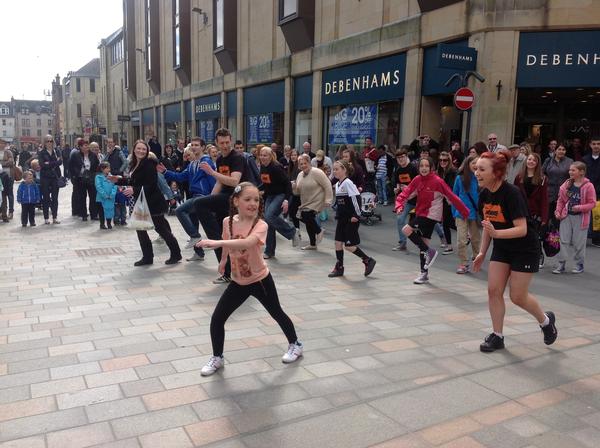

|

A flashmob marked the launch of the youth membership |
|

|
Breaking barriers

Organisation: Inverness Leisure
Project: Helping children with autism

Inverness Leisure has launched a free Swim Access Scheme for families affected by autism, thought to be the first of its kind in the UK.
In partnership with the National Autistic Society Scotland, Inverness Leisure developed an illustrated booklet for parents and carers detailing the various experiences and sensations they might come across at a swimming pool.
The scheme was created after CEO James Martin was approached by a customer with an autistic child. “They had experienced difficulty and expense bringing their son to the pool,” he says. “They had to leave almost as soon as they got in the water, as the experience was too stressful for their child.
“Our coaching and instruction staff had been trained by the National Autistic Society (NAS), and by Highland Council’s outreach team on working with children on the autistic spectrum, so we had a good understanding of the needs of children with autism. We decided to do something about the situation our customer described, creating a scheme that would offer families the chance to prepare themselves to come swimming.”
In addition to the booklet, each family is also provided with six free family swim vouchers, allowing them to ‘acclimatise’ themselves with swimming at Inverness Leisure pools.
“Swimming is a life-skill, and it’s important that everyone has access to water in order to build their understanding and confidence,” adds Martin. “The scheme also has the additional benefit of introducing children on the autistic spectrum to a very family-based activity, giving them the opportunity to improve their social development skills as well.”
| |
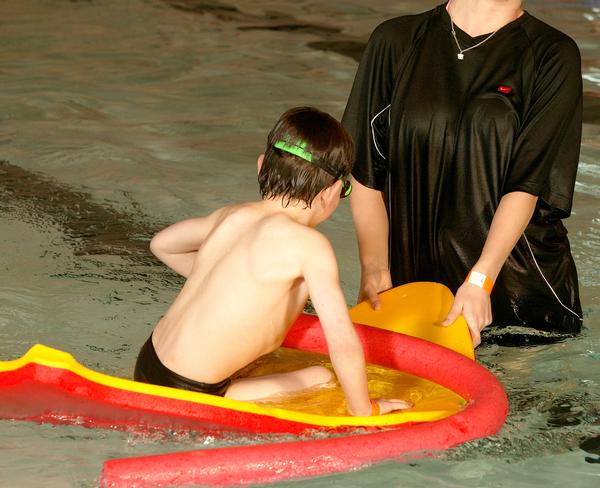

|

Inverness Leisure offers autistic children and their families six free swimming vouchers |
|

|
Transforming lives

Organisation:Impulse Leisure
Project: Short Breaks

Impulse Leisure’s Short Breaks initiative has been running across its three West Sussex sites for three years. The scheme, for disabled children and their families, gives kids a chance to try new activities – from trampolining to aqua therapy, table tennis to football and multi-sports sessions – while parents have some well-deserved time off.
Ten-year-old Joseph Greaves is just one child who’s benefited from the scheme. He has classic autism, sensory processing disorder, hyper-mobility and chronic bowel disorder, and has been attending sessions including football, gymnastics, tennis, cricket, basketball and dance.
The multi-sports sessions have helped make Joseph aware that others may not play the same as him, and he’s learning to accept rules and understand why they are there. His social skills have also improved, along with his listening and turn-taking skills, running ability and hand-eye co-ordination. He’s more confident, more body aware and more aware of other people. He’s now learning to tap dance, which is having a positive effect on his hyper-mobility disorder.
In the past, Joseph could become extremely angry over something that had happened, but this has become less so as his verbal skills have grown and he’s become more confident that the staff, who tailor sessions around his interests, are there to help him.
Short Breaks funding – part of the government’s Aiming High for Disabled Children programme, designed to transform services for children and young people with disabilities and their families – has enabled Impulse Leisure to increase levels of participation by offering low-cost sessions and activities.
Impulse Leisure received the first batch of funding in 2011, which financed two Fun Days at its Lancing Manor and Southwick sites, and a Fun Day and After School Clubs at Chanctonbury Sport & Leisure, giving the trust valuable insight into what children and young people with disabilities wanted.
| |
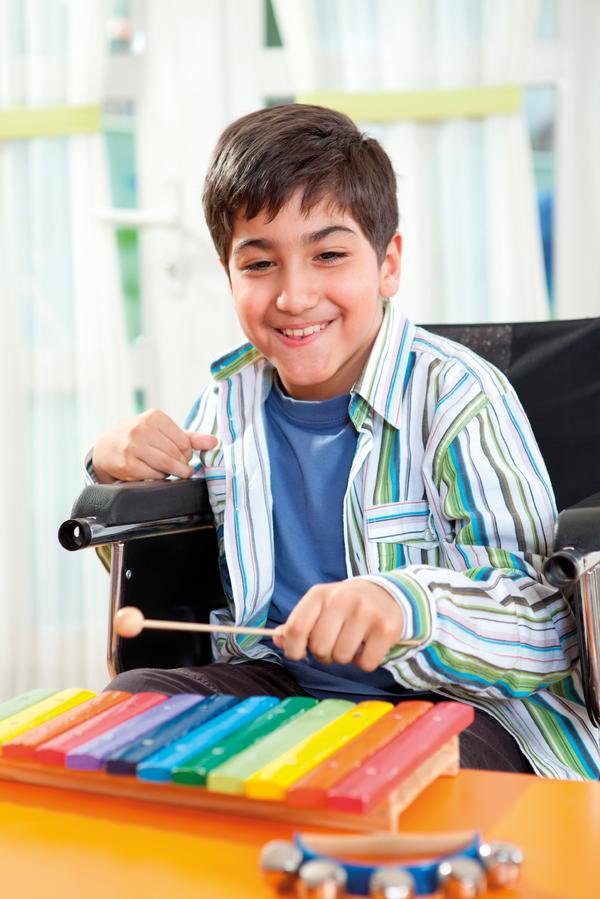

|

Disabled children can try new activities which develop their social skills |
|

|
Personal development

Organisation: Valley Leisure
Project:Explore Outdoor

Valley Leisure’s outdoor adventure activity programme, Explore Outdoor, enables eight- to 14-year-olds to participate in instructor-led activities such as canoeing, archery, climbing, bushcraft, and orienteering to develop map skills.
Valley Leisure has worked with over 50 community and school-based groups in the last two years to deliver their ‘learning outside the classroom’ curriculum – a personal development curriculum that supports the government’s Learning Outside the Classroom initiative, designed to ensure that every young person experiences the world beyond the classroom as part of learning and development.
Recent developments from Valley Leisure include a three-day camping residential for 70 local secondary school children, and termly Year 5 primary school Adventure Days, which throughout the year build on skills such as teamwork and communication.
“Ofsted’s review into outdoor learning found that the majority of schools offering outdoor learning adventure experiences were as a five-day residential trip for Year 6 pupils,” says James Blyth, Valley Leisure’s assistant manager for sport and activity development. “Ofsted found the more exposure to adventure activities young people have, the more they get out of the five-day trip. We’re therefore not competing with trips, but rather offering an opportunity to complement and develop skills on a more frequent basis.”
Research in the Test Valley area had shown that one of the reasons schools didn’t regularly visit leisure facilities was because of the costs involved, not only for the activity but for transportation too. Valley Leisure therefore boosted the success of Explore Outdoor by purchasing a mobile climbing wall, Land Rover, 10 Canadian Canoes, mobile archery solution and other equipment.
Explore Outdoor now delivers tailored sessions to special needs schools, scout groups, local rehabilitation services, NEET groups, Pupil Referral Units and local events in Test Valley.
| |
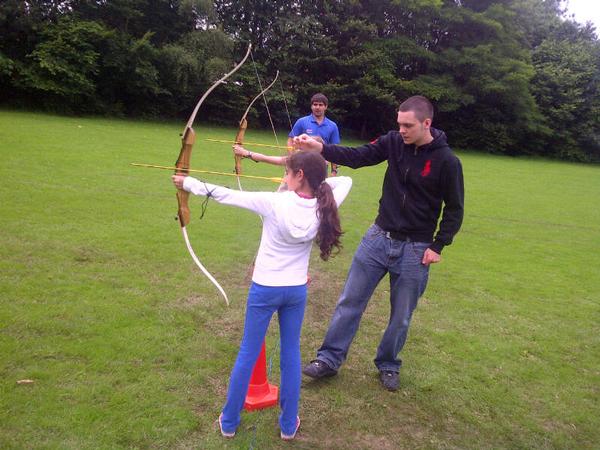

|

The outdoor activities help build key life skills |
|
 |
| Originally published in Sports Management 2013 issue 4
|
|
 |
|
|
|
|
|
| |